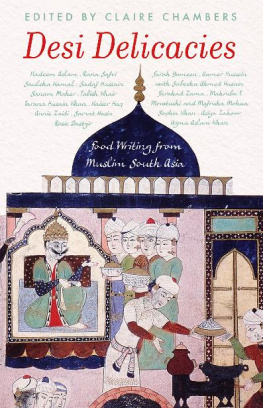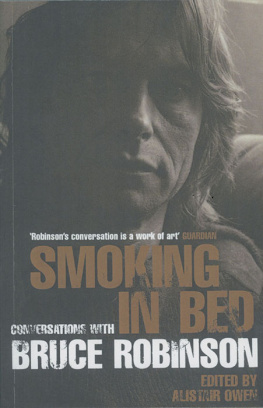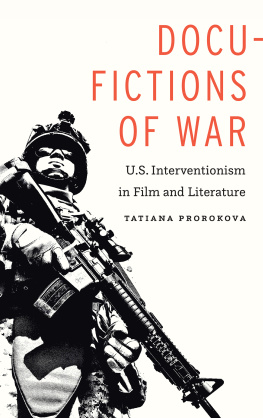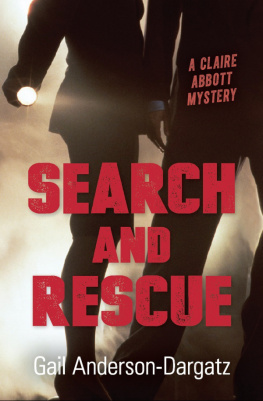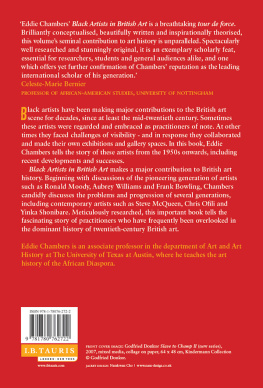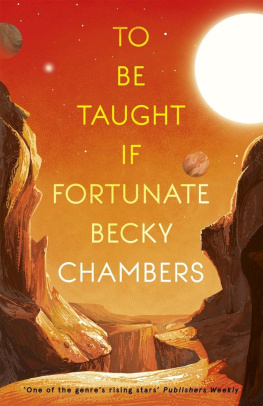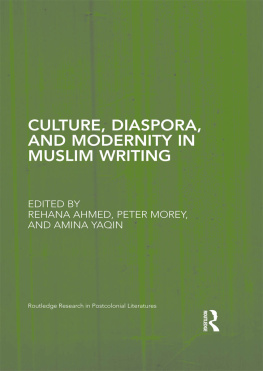Claire Chambers - British Muslim Fictions: Interviews with Contemporary Writers
Here you can read online Claire Chambers - British Muslim Fictions: Interviews with Contemporary Writers full text of the book (entire story) in english for free. Download pdf and epub, get meaning, cover and reviews about this ebook. year: 2011, publisher: Palgrave Macmillan, genre: Art. Description of the work, (preface) as well as reviews are available. Best literature library LitArk.com created for fans of good reading and offers a wide selection of genres:
Romance novel
Science fiction
Adventure
Detective
Science
History
Home and family
Prose
Art
Politics
Computer
Non-fiction
Religion
Business
Children
Humor
Choose a favorite category and find really read worthwhile books. Enjoy immersion in the world of imagination, feel the emotions of the characters or learn something new for yourself, make an fascinating discovery.

- Book:British Muslim Fictions: Interviews with Contemporary Writers
- Author:
- Publisher:Palgrave Macmillan
- Genre:
- Year:2011
- Rating:5 / 5
- Favourites:Add to favourites
- Your mark:
- 100
- 1
- 2
- 3
- 4
- 5
British Muslim Fictions: Interviews with Contemporary Writers: summary, description and annotation
We offer to read an annotation, description, summary or preface (depends on what the author of the book "British Muslim Fictions: Interviews with Contemporary Writers" wrote himself). If you haven't found the necessary information about the book — write in the comments, we will try to find it.
British Muslim Fictions: Interviews with Contemporary Writers — read online for free the complete book (whole text) full work
Below is the text of the book, divided by pages. System saving the place of the last page read, allows you to conveniently read the book "British Muslim Fictions: Interviews with Contemporary Writers" online for free, without having to search again every time where you left off. Put a bookmark, and you can go to the page where you finished reading at any time.
Font size:
Interval:
Bookmark:
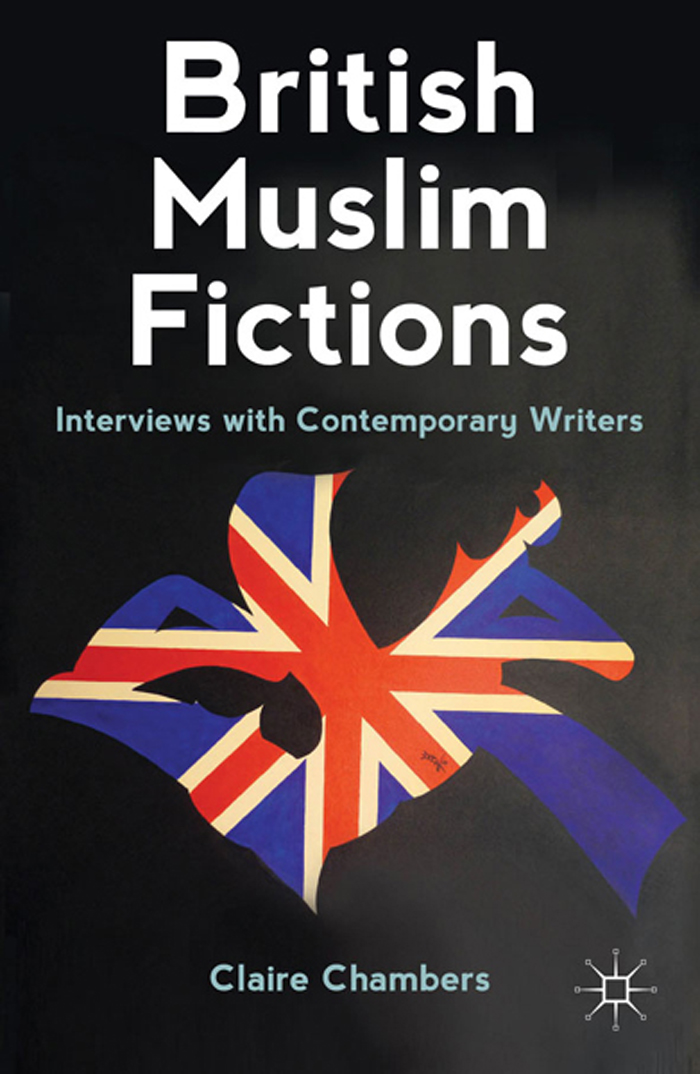


Claire Chambers 2011
All rights reserved. No reproduction, copy or transmission of this publication may be made without written permission.
No portion of this publication may be reproduced, copied or transmitted save with written permission or in accordance with the provisions of the Copyright, Designs and Patents Act 1988, or under the terms of any licence permitting limited copying issued by the Copyright Licensing Agency, Saffron House, 610 Kirby Street, London EC1N 8TS.
Any person who does any unauthorized act in relation to this publication may be liable to criminal prosecution and civil claims for damages.
The author has asserted her right to be identified as the author of this work in accordance with the Copyright, Designs and Patents Act 1988.
First published 2011 by
PALGRAVE MACMILLAN
Palgrave Macmillan in the UK is an imprint of Macmillan Publishers Limited, registered in England, company number 785998, of Houndmills, Basingstoke, Hampshire RG21 6XS.
Palgrave Macmillan in the US is a division of St Martins Press LLC, 175 Fifth Avenue, New York, NY 10010.
Palgrave Macmillan is the global academic imprint of the above companies and has companies and representatives throughout the world.
Palgrave and Macmillan are registered trademarks in the United States, the United Kingdom, Europe and other countries.
ISBN 9780230252332 hardback
ISBN 9780230308787 paperback
This book is printed on paper suitable for recycling and made from fully managed and sustained forest sources. Logging, pulping and manufacturing processes are expected to conform to the environmental regulations of the country of origin.
A catalogue record for this book is available from the British Library.
A catalog record for this book is available from the Library of Congress.
10 9 8 7 6 5 4 3 2 1
20 19 18 17 16 15 14 13 12 11
Printed and bound in Great Britain by
CPI Antony Rowe, Chippenham and Eastbourne
For Joash and Derry
I could not have written this book without the financial, intellectual, and emotional support of many institutions and people. Financially, I am indebted to HEFCEs Promising Researcher Fellowship, the British Academys Small Grants, and the Arts and Humanities Research Boards Early Career Fellowships for providing funding for the sabbaticals and resources which made it possible to undertake this research. I thank them for their generous support.
I am very grateful to colleagues and former colleagues at the School of Cultural Studies at Leeds Metropolitan University (especially Ruth Robbins, Caroline Herbert, Mary Eagleton, Christer Petley, Kristyn Gorton, Rachel Farebrother, Babita Bhogal, Melanie Chan, Lisa Taylor, Emily Marshall, Rachel Rich, and Kenyetta Cohen), for their academic and administrative support, help with funding applications, and, above all, their advice on general and scholarly matters. Sections from the introduction have appeared in an earlier form in my article, A Comparative Approach to Pakistani Fiction in English, Journal of Postcolonial Writing 47(2) (April 2011): 12234. The interview with Leila Aboulela was first published as An Interview with Leila Aboulela, Contemporary Womens Writing 3(1) (2009): 86102. Thanks to the editors of these periodicals for helping me develop my ideas in print.
Intellectually, I have too many debts even to begin to repay. The book would not have been possible without the enthusiastic participation of the thirteen authors interviewed here. They deserve my thanks for the fiction, nonfiction, conversations, political insights, and innumerable kindnesses. I would also like to thank the writers Bina Shah, Tabish Khair, and John Siddique for their friendship and patient proofreading.
Bart Mooregilbert provided advice and a welcome research base at Goldsmiths College in the early stages of the project. James McGrath, James Dodge, and Gareth Bell helped me with invaluable transcription and other work. Warm thanks go to Sameena Choudry of Education Leeds for working with me on the education project described in the Introduction, and for sharing her wide knowledge of South Asian writing. I am very grateful to Nukhbah Langah, Muneeza Shamsie, and Shadab Zeest Hashmi for their friendship and intellectual insights in Pakistan, cyberspace, and elsewhere. Of the community groups Ive worked with, thanks go to Zahid Hussain (again) of Man chester Muslim Writers; Irfan Akram of Muslim Writers Awards; and Waqas Tufail and Nasreen Mansoor of Greater Manchester Diversity Researchers Forum (GMDRF), University of Manchester.
I have also received great intellectual and emotional support from my academic friends. Of these, five deserve special mention. My thinking about this book has greatly benefited from lively discussions with Peter Morey, Amina Yaqin, Anshuman Mondal, and Stephen Morton. Most importantly, I doubt I would have been able to cope with the pressures of juggling teaching with research, had it not been for Susan Watkinss friendship, collegiality, and sense of proportion.
The most heartfelt thanks go to Rob, Joash, Derry, Susan, and Richard. I benefit so much from your belief in me and unconditional love and support. I hope the finished book is worth all the benign neglect (dont worry: you dont have to read it!).
British Muslim Fictions is supported by the Arts and Humanities Research Council (AHRC).

This book of interviews with writers of Muslim heritage is the first in a two-book project, to be followed by a monograph on artistic representations of British Muslims, 1966present. In terms of the selection criteria for this book, the interviewed writers are resident in the UK, of Muslim heritage, and have produced literary fiction in English widely considered to be high quality and influential. The second book focuses on representations of Muslims by writers who are often, but not necessarily, of Muslim heritage. Both books analyse the term Muslim writing, which has recently come into currency, in order to complicate and contest it.
There has long existed high demand for author interviews as resources to supplementing understanding of contemporary literature. Three recent volumes of interviews illustrate this point: Susheila Nastas edited volume Writing Across Worlds which contains interviews with writers broadly considered postcolonial; However, my book differs from these collections, given its exclusive focus on writers with Muslim backgrounds in Britain and beyond. This is important because their excellent writing, while rarely discussed in relation to religious identities, is increasingly gaining recognition from critics, literary prize boards, and research students. The volume is also distinct from the first two in that all interviews are conducted by me as the single researcher.
Font size:
Interval:
Bookmark:
Similar books «British Muslim Fictions: Interviews with Contemporary Writers»
Look at similar books to British Muslim Fictions: Interviews with Contemporary Writers. We have selected literature similar in name and meaning in the hope of providing readers with more options to find new, interesting, not yet read works.
Discussion, reviews of the book British Muslim Fictions: Interviews with Contemporary Writers and just readers' own opinions. Leave your comments, write what you think about the work, its meaning or the main characters. Specify what exactly you liked and what you didn't like, and why you think so.

